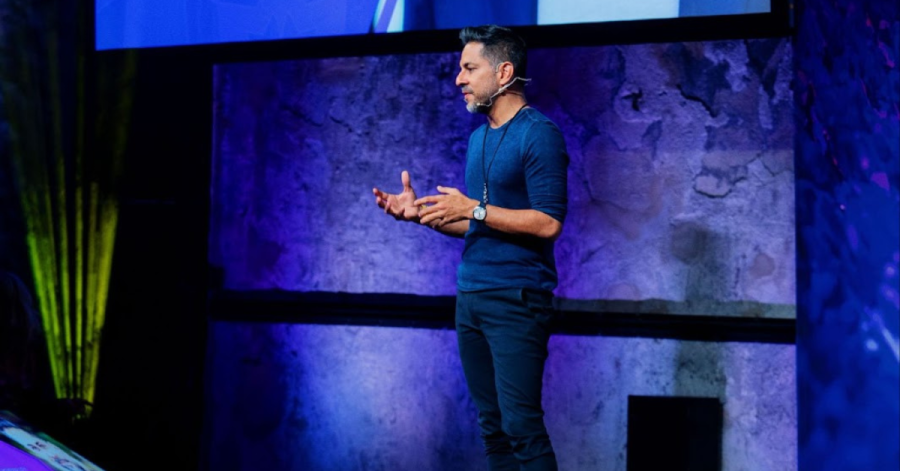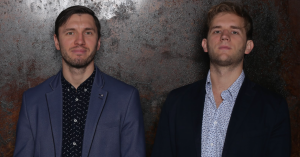“Your time put into work has no, or little correlation to your success in the business.”
“You can build a million-dollar business with 0 investment.”
“You don’t need to pick your business over your life or health. You can have it all and create a full-rounded life experience.”
I felt my stomach in knots as I listened to Vishen Lakhiani’s thoughts on entrepreneurship at Mindvalley University in Tallinn this July. I looked around. The main hall of Kultuurikatel, Tallinn’s creative center, blended the vibes of a cutting-edge tech conference with the energy of an Ibiza party. Over 300 entrepreneurs, coaches, soul healers (yes, you heard it right), and investors, dressed in designer yoga pants or eclectic outfits, saw Vishen challenge almost everything we believed about entrepreneurship. And life.
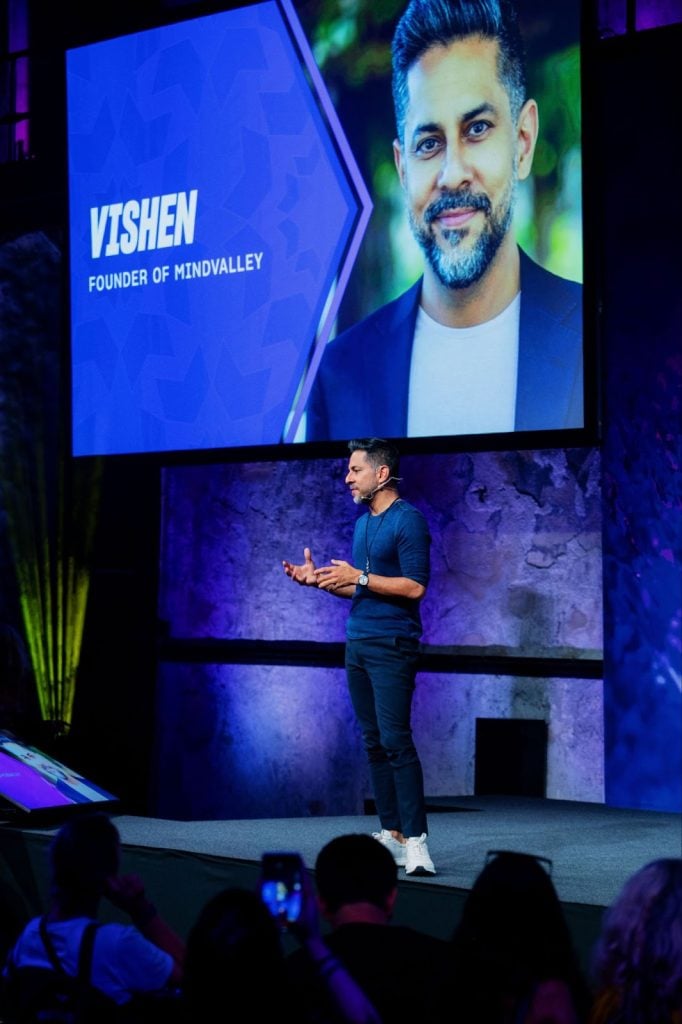
Vishen Lakhiani, the founder of Mindvalley and former Silicon Valley executive, comes from Malaysia and has made a remarkable career shift from engineer to pioneering entrepreneur. His company, Mindvalley, offers diverse online courses covering topics like entrepreneurship, mental health, meditation, financial freedom, manifesting, and more. Starting from nothing, Vishen steered Mindvalley to $100 million in revenue, all without external investments. His guiding principle: “Trust intuition, dream big, and meditate daily.”
This summer, my friends and I felt that we needed a change of perspective, and I personally – a nudge to shift gears in my own business. Instead of booking the usual blue-lagoon holiday on the Greek coastline, we flew north to Tallinn, Estonia, to attend Mindvalley University – a 21-day in-person campus bringing together selected Mindvalley authors and global members. All sessions were skillfully delivered and aimed to expand our horizons. Here are 3 highlights that I picked up and are worth sharing.

Work on your belief structure alongside your strategy and product
Vishen arrived on the stage as an athlete, coming to the arena, cheered by the public. He started his talk by asking each of us to identify our false beliefs about work, business, and entrepreneurship.
Hustling is the only way to succeed.
Structure is for (evil) corporations.
You have to be the first in your field…
Just to name a few.
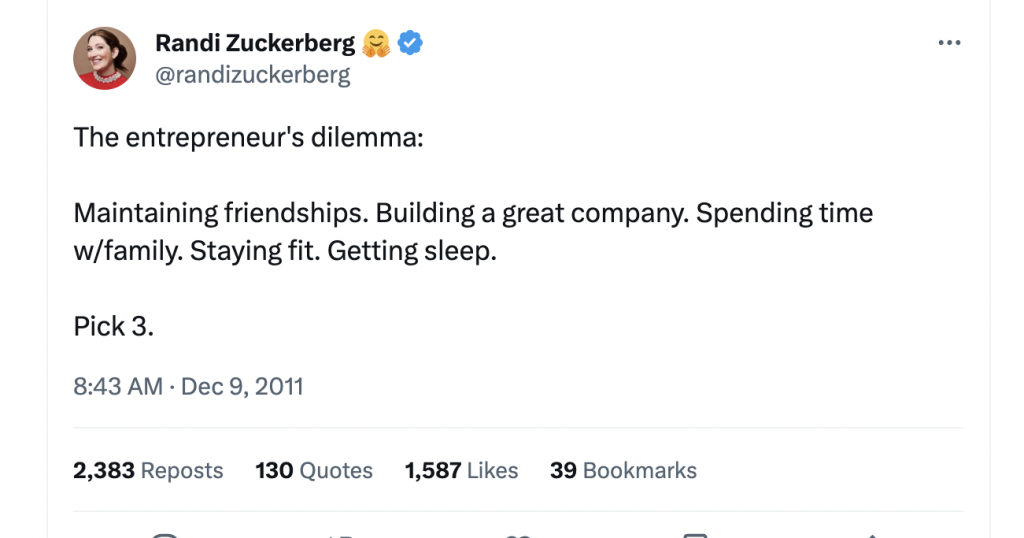
Quoting this popular tweet by Mark Zuckerberg’s sister, Vishen feels disheartened by the “work until you collapse” culture pervasive in many startups today. He challenged the exhausted founder stereotype, creating a vision that you can have it all if you manage yourself and your resources properly.
Our work beliefs come not only from our environment, but also from our upbringing, the work ethics or struggles of our parents, and our early career experiences. It’s important to be aware of these, as our reality today is a construct of our belief structure. I’ve worked with founders who had the right people, investment, and talents, and yet, because of their own dysfunctional mental models, they stifled the growth of their business or burned themselves up before being able to build a sustainable team structure.
Vishen concluded with a story that before Mindvally he wanted to obtain formal business education but got rejected from all MBA schools he applied to. Now, he gets invited to speak and inspire students at exactly those schools that rejected him. A typical Silicon Valley-style story, I admit. Yet, this reminds me of another startup pattern – just like authors write the books they need themselves, entrepreneurs build the products they need themselves. Similarly, the leadership style we embrace often mirrors the parental support we lack or subconsciously compensates for a negative experience with an early career boss.
To shed light on these mental models, Vishen and the other speakers advise the following:
- Use therapists and coaches to catalyze growth in three directions: mindset (thinking and beliefs), spirituality (energy and intuition), and tangibles (investment, skills, technology). Many founders make the mistake of focusing only on the last one.
- Spend time alone and find a connection with something bigger than yourself and your business. Prayer, meditation, and community involvement can help. As French philosopher Blaise Pascal has put it: “All of humanity’s problems stem from man’s inability to sit quietly in a room alone.”
- Read autobiographies, not only business books. Mental models are continuously shaped by exposing ourselves to new stories and real-life experiences, including those of others.
Your words matter more than you think
Marisa Peer, a renowned therapist for global elites, CEOs, Royalty, and Olympic athletes, continued with a similar argument about the power of language. She illustrated how the way we speak – not just in pitches and product demos but also in daily interactions with colleagues, investors, and even ourselves, shapes our business outcomes.
Words make meaning. “Every word you say is a blueprint that your mind, body, and psyche want to make a reality, ” says Marissa. Your mind doesn’t care if what you tell it is good or bad, useful, or not. Your mind’s job is to make your thoughts real.
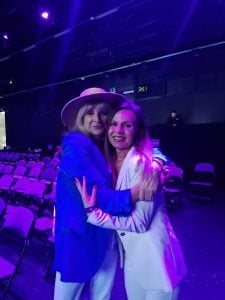

Often, we hear founders say things like, “We’re doomed” (the popular quote from Gilfoyle in the Silicon Valley series), “Ugh, things got really ugly with that client,” or “I literally cannot survive another board meeting.” Exaggerations like this seem harmless, but Marisa thinks differently. All of these phrases materialize and vocalize the negative beliefs that Vishen addressed earlier and tend to rear up periodically to sabotage our success. How you think and speak about money, for example, directly affects the growth of your business as well as your ability to secure funding and make good use of it.
If we continue the money block example, a good starting point is to catch yourself on how often you use diminishing phrases like “We can’t afford that,” “That’s just too much,” “We’re broke” or “Filthy rich”-kind of metaphors. Consider also:
- How you speak about money and finances not only with colleagues but also with friends and relatives.
- How you treat money: do you have a decent wallet, do you often lose coins on the street, is money staying with you or do you have the habit of spending it quickly?
- Do the people around you have an abundance mindset or a scarcity mindset?
Healthy body, healthy startup
The final highlight of the week for me was a meet-up of the Health and Longevity tribe or in other words – entrepreneurs, coaches, and investors interested in health tech, longevity, and biohacking. This dinner solidified my understanding that there’s a clear third metric of success – the quality of your health and relationships, ranking as high as valuation and impact. Longevity is by no surprise expected to unlock the world’s fastest-growing market.
People quickly opened up about their business struggles and about overcoming severe health issues along the way. Leaning into the basics of sleep, food, and mindset, they’re now using these insights to build new products in health tech. It was such a relief to see that even the most orthodox biohackers agree that a glass of red wine helps to reduce the risk of heart disease.
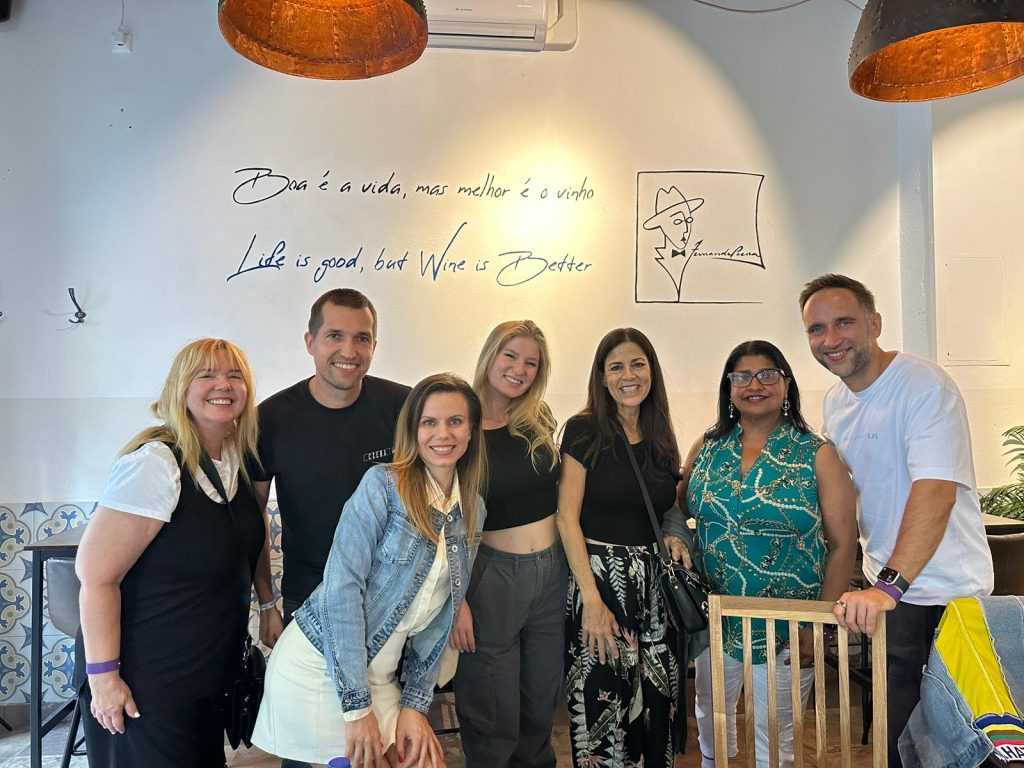
As Eric Edmeades, entrepreneur and Vishen’s coach, said when somebody from the audience asked him: “What’s one thing you need to master to be a great public speaker?”, he said:
“The biggest secret of being great at anything, a great parent, a great CEO, a public speaker, etc. is to be healthy. Mentally and physically. It all starts from there.”
Sounds great, doesn’t it? Yet, we all know what happens in the daily chaos of running a startup.
Here are three tips from the longevity tribe that stood out for me:
- If you prioritize your business over your health or relationships, do it in timeframes shorter than a year.
- When things get hectic and you’re about to drop workouts, meditation apps, socials, etc., try to stick to the 3 basics: quality sleep, proper nutrition, and movement – not necessarily done in the gym.
- In your goal setting, add health metrics, for yourself and your team, alongside your business KPIs.
Friday night. We swapped our tables for leafy wreaths and folk-tribal accessories to attend the Nordic Summer Soirée at the Estonian Open Air Museum. 11 pm felt like 5 pm as we danced around the Bonfire and said goodbye to one another, exchanging WhatsApp to continue networking from our homelands.


